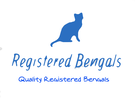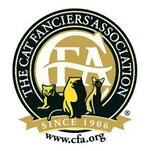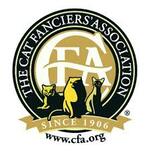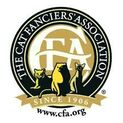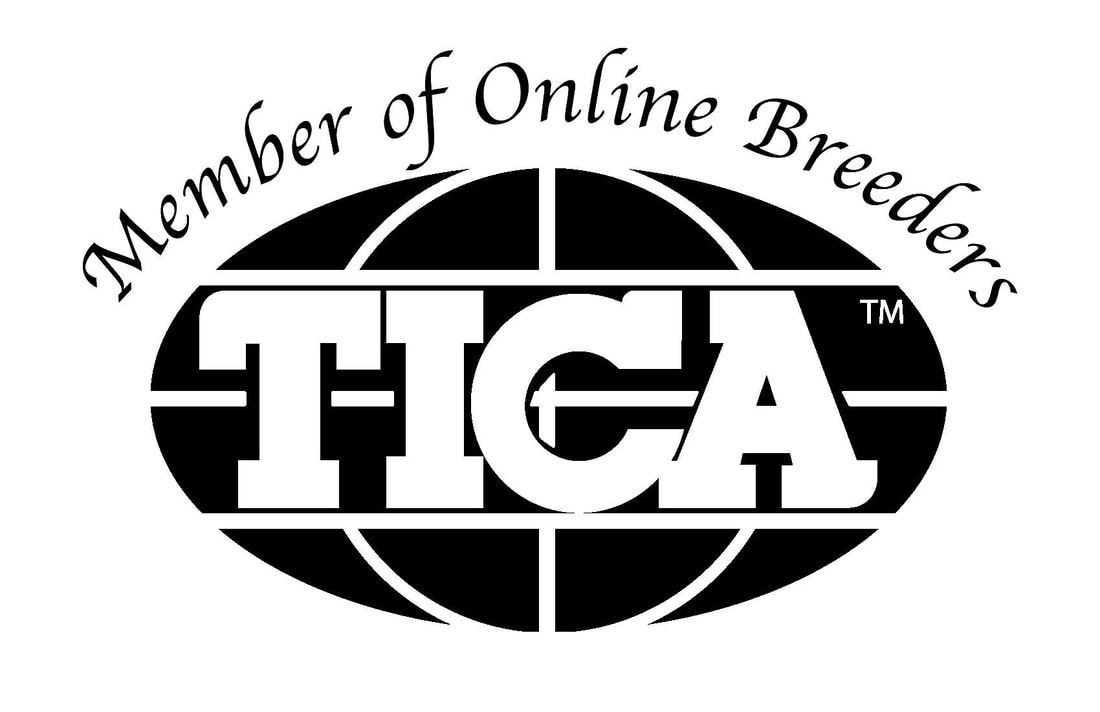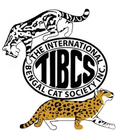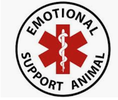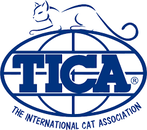CFA Breeder Code of Ethics As a breeder who uses the services of the world’s largest registry of pedigreed cats, I understand I have certain responsibilities to pedigreed cats and to the Cat Fanciers’ Association (CFA). I am aware that I am representative of CFA breeders in my community.
I will breed my cats with the intent of improving the breed and to produce healthy, happy kittens. I will deal honestly with the purchasers of my kittens and cats. To the best of my knowledge and ability
I will not, without prior disclosure, sell any kitten/cat that is sick or has been exposed to an infectious disease.
I will not sell or place kittens prior to their attaining a proper level of immunity against common infectious diseases.
I will place cats directly to the new pet owner or in a manner that will enable contact with the ultimate owner to provide on-going education and advice.
I will strive to house my cats in a manner exceeding the CFA Minimum Cattery Standard.
I will ensure my cats are kept in a healthy environment and I will ensure they receive the proper veterinary care as needed.
I will maintain appropriate cattery records and will correctly register litters and cats.
I will work honestly with my fellow breeders and provide timely and correct litter registration information to those who use my cats for breeding.
I will mentor new breeders to ensure they have a solid information foundation.
I will breed my cats with the intent of improving the breed and to produce healthy, happy kittens. I will deal honestly with the purchasers of my kittens and cats. To the best of my knowledge and ability
I will not, without prior disclosure, sell any kitten/cat that is sick or has been exposed to an infectious disease.
I will not sell or place kittens prior to their attaining a proper level of immunity against common infectious diseases.
I will place cats directly to the new pet owner or in a manner that will enable contact with the ultimate owner to provide on-going education and advice.
I will strive to house my cats in a manner exceeding the CFA Minimum Cattery Standard.
I will ensure my cats are kept in a healthy environment and I will ensure they receive the proper veterinary care as needed.
I will maintain appropriate cattery records and will correctly register litters and cats.
I will work honestly with my fellow breeders and provide timely and correct litter registration information to those who use my cats for breeding.
I will mentor new breeders to ensure they have a solid information foundation.
CFA Cattery Standard Minimum Requirements.
Registered Bengals strives to meet and exceed all of these standards.
For the purposes of this standard the following definitions shall apply:
Standards - Primary Enclosures
Primary enclosures shall provide a micro-environment that satisfies the standards for the Cattery Facility as well as the following additional standards:
Feeding and Water
Cleaning and Sanitation
Health Care
Cruelty
- Person: An individual, firm, partnership, corporation, trust or any association of persons.
- CFA Cattery: Any person(s) who register a litter of kittens with the Cat Fanciers' Association or who has registered three or more cats with the Cat Fanciers' Association or who has registered a cattery name with the Cat Fanciers' Association.
- Cattery Facility: A building, room or area used to house cats.
- Primary Enclosure: A structure used to immediately restrict one or more cats to a limited amount of space, such as a room, pen, run, cage or compartment.
- Animal Cruelty: Any inhumane or abusive or neglectful treatment causing harm or death of a cat as determined by local law enforcement authorities.
- Cat-in-distress: A cat which is in jeopardy of life or limb, as determined by a qualified animal control officer or veterinarian.
- Litter: Material to be used by the cat for defecation or urination.
- Litter Pan: An enclosure or area in which the litter is placed for the cat to use.
- The Cattery facility, whether it be a private residence, portion of a private residence or a separate structure not physically connected to a private residence, shall be structurally sound and maintained in good repair to protect the cats from injury, to protect the cats against overexposure to the elements, to contain the cats and to restrict the entrance of other animals.
- Supplies of food, bedding and interior building surfaces shall be maintained in a sanitary manner.
- Food shall be transported, handled and stored in a manner that ensures against the introduction of parasites, disease vectors (such as insects) or chemical contaminants. Supplies of dry food shall be store din area that are cool, dry, clean and free of vermin and other potential contaminants. Refrigeration shall be provided for supplies of perishable food. Conditions affecting the shelf life of food such as date of manufacture, exposure to extremes in temperature and humidity, exposure to moisture, unsanitary conditions, exposure to light, exposure to oxygen, and exposure to insects shall be monitored to prevent deterioration of the nutrient value of food.
- The facility shall be adequately heated and cooled to protect the cats from excessive cold and heat. The ambient temperature shall be maintained in a range that ensures that the cats will not suffer from heat stress (heat stroke or hyperthermia) nor from cold stress (frostbite or hypothermia).
- The facility shall be adequately ventilated to provide for the health and comfort of the cats at all times. The facility shall be provided with a source of fresh air by means of windows, doors, or vents and shall be ventilated in a manner that minimizes drafts, odors and moisture conditions.
- The facility shall have ample light of good quality by natural or artificial means or both. The lighting shall provide uniformly distributed illumination of sufficient intensity to permit routine inspection, cleaning and provide for the well-being of the cats. The cats shall be protected from excessive illumination.
- When sunlight is likely to cause overheating or discomfort, sufficient shade shall be provided to allow cats to protect themselves from direct rays of the sun.
- An access to shelter shall be provided for cats to allow them to remain dry at all times.
Standards - Primary Enclosures
Primary enclosures shall provide a micro-environment that satisfies the standards for the Cattery Facility as well as the following additional standards:
- A primary enclosure shall be structurally sound and maintained in good repair to protect the cats from injury, to contain them, to keep other animals out, and to enable the cats to remain dry and clean.
- A primary enclosure shall provide sufficient space to allow each enclosed cat to turn freely and to easily stand, sit and lie in a comfortable position. The minimum primary enclosure space for a single 4 lbs. Or greater cat is to be 30 cubic feet. Where the primary enclosure is used for more than one cat, resting perches shall be provided.
- A primary enclosure shall be constructed and maintained so that cats therein have convenient access to clean food, water and litter.
- The number of cats in a primary enclosure shall not exceed the number which would prevent proper ventilation and sanitation.
- A primary enclosure shall not be constructed or maintained with an exposed wire mesh bottom or any other material that will injure the feet or legs of a cat.
- If the primary enclose is not of sufficient size to allow the cat(s) to express their specialized locomotor patterns, then a area shall be made available for the cat(s) to exercise and scratch at least once a day.
Feeding and Water
- Cats shall be fed at least once each day except as otherwise required by a veterinarian. The foods shall be free from contamination and shall be wholesome, palatable and of sufficient quantity and nutritive value to meet the normal daily requirements for the condition and size of the cat. Food shall be provided in sufficient amounts to ensure normal growth in kittens and maintenance of normal body weight in adults.
- Food receptacles shall be accessible to all cats and shall be located to prevent contamination by excreta. Feeding dishes shall be kept clean. Self-feeders may be used for the feeding of dry food and shall be sanitized regularly to prevent molding, deterioration or caking of food.
Cleaning and Sanitation
- Primary enclosures, the cattery facility and storage spaces shall be cleaned with appropriate detergents and disinfectants as often as is necessary to keep them free of dirt, debris and harmful contamination.
- Easily accessible litter pans shall be provided for all cats at all times.
- Feces and soiled litter material shall be removed from all litter pans at least once a day.
- Absorbent litter and/or any other material used to absorb urine shall be changed when it becomes 30 percent saturated with urine.
- The cattery facility shall be kept clean and remain free of an accumulation of debris and excreta.
- All primary enclosures and accessory equipment, such as feeding bowls and watering devices, shall be washed and sanitized frequently to keep them clean and free from contamination.
- An effective program for the control of insects, ectoparasites and mammalian pests, if present, shall be established and maintained using animal safe products.
Health Care
- The cattery shall promptly provide medical care to any cat-in-distress and/or any cat exhibiting signs of severe illness.
- Cats shall be observed daily and diseased cats shall promptly be provided with medical care.
- A vaccination program, under advice of a veterinarian, is recommended.
- Cats shall be kept clean, free of severe coat mats and generally groomed sufficiently to maintain a healthy condition.
Cruelty
- Cats residing in the cattery facility shall be treated humanely and without neglect.
- Catteries shall not allow a cat to be deprived of necessary sustenance, deprived of potable water, deprived of clean quarters, deprived of protection from weather, beaten, mutilated, cruelly treated or allow, through neglect, any situation to exist or per sist that would cause a cat-in-distress condition to occur or persist.
